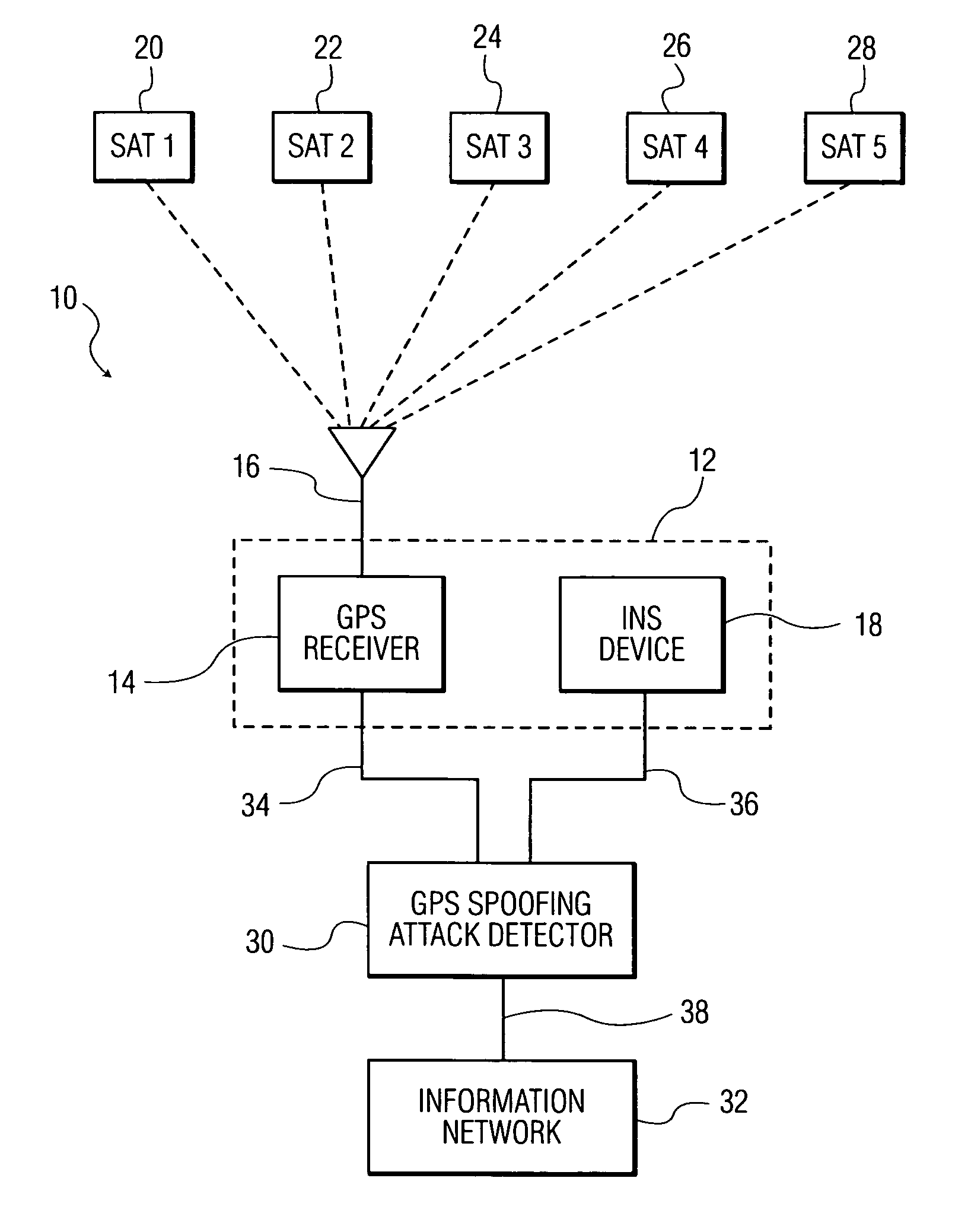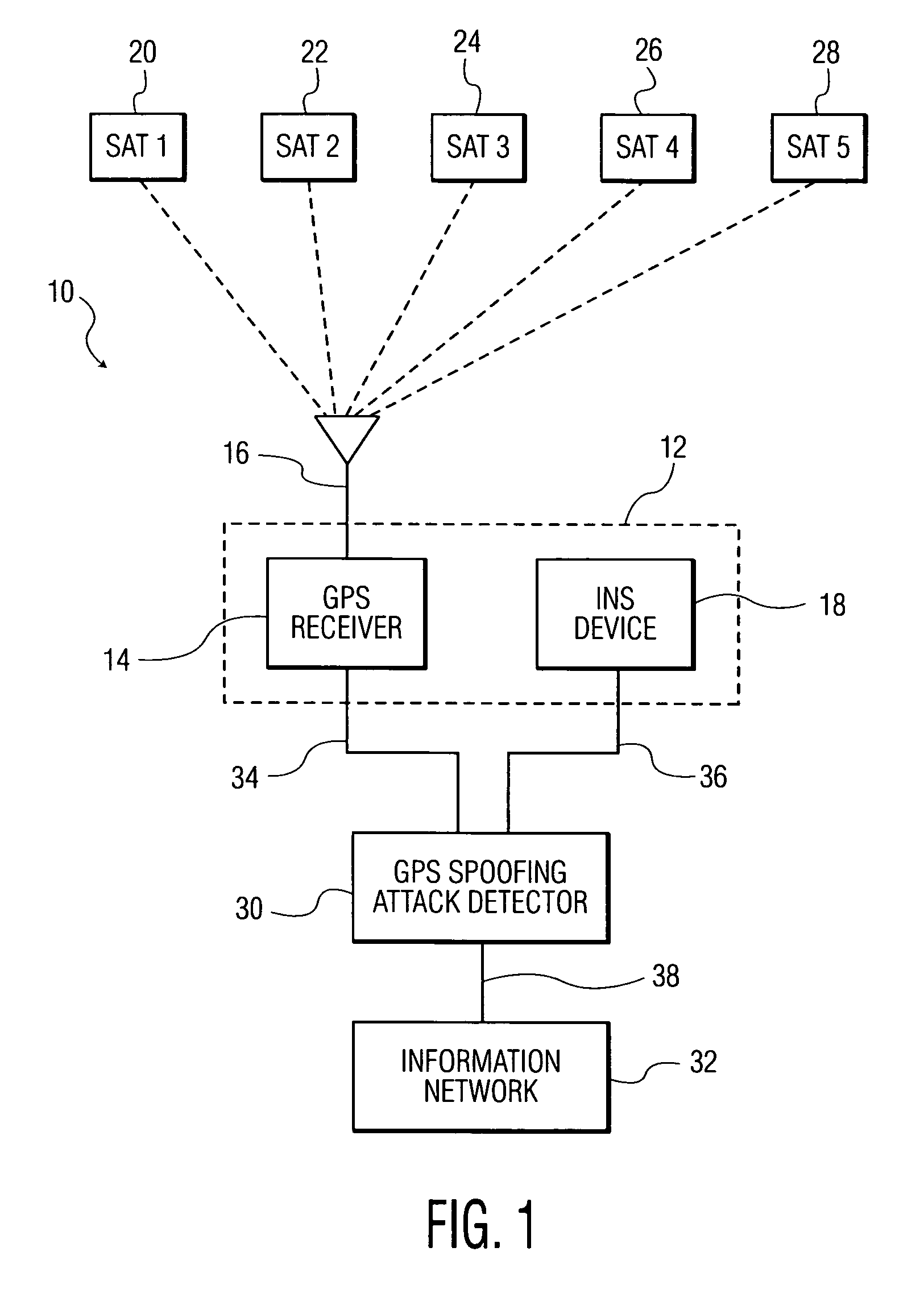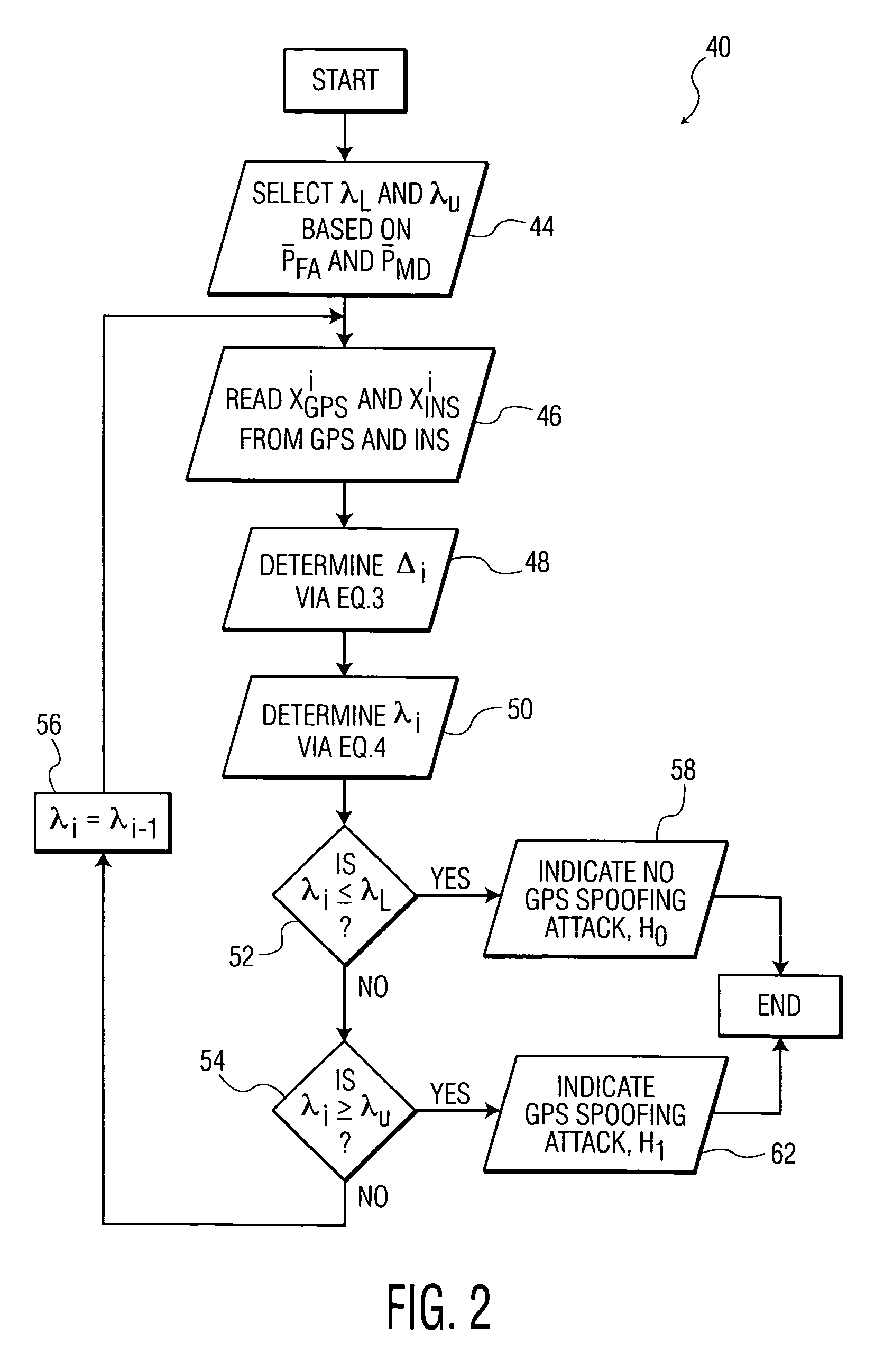Methods and systems for detecting GPS spoofing attacks
a technology of gps spoofing and detection methods, applied in surveying, navigation, instruments, etc., can solve the problems of gps spoofing being a covert attack with severe consequences, fooling people into tracking erroneous data, and high vulnerability of networks to gps spoofing attacks, so as to achieve effective detection and identification of gps, improve accuracy, and enhance information content and processing efficiency
- Summary
- Abstract
- Description
- Claims
- Application Information
AI Technical Summary
Benefits of technology
Problems solved by technology
Method used
Image
Examples
Embodiment Construction
[0029]Various embodiments of the invention are described using various known acronyms, and definitions thereof, which are provided immediately below.
[0030]The term “global positioning system (GPS)” as used herein is intended to refer to a space-based global navigation system, comprising multiple GPS satellites as configured to continually transmit messages as they orbit the Earth, and a GPS receiver which calculates its position by precisely timing the signals sent by the GPS satellites. In this manner, a user with a GPS receiver is able to receive reliable location and time information in all weather and at all times and anywhere on or near the Earth when and where there is an unobstructed line of sight to four or more GPS satellites.
[0031]The term “inertial navigation system (INS)” as used herein is intended to refer to any navigational aid adapted to provide information on position, orientation and velocity of a navigational unit without the need for external references. The INS ...
PUM
 Login to View More
Login to View More Abstract
Description
Claims
Application Information
 Login to View More
Login to View More - R&D
- Intellectual Property
- Life Sciences
- Materials
- Tech Scout
- Unparalleled Data Quality
- Higher Quality Content
- 60% Fewer Hallucinations
Browse by: Latest US Patents, China's latest patents, Technical Efficacy Thesaurus, Application Domain, Technology Topic, Popular Technical Reports.
© 2025 PatSnap. All rights reserved.Legal|Privacy policy|Modern Slavery Act Transparency Statement|Sitemap|About US| Contact US: help@patsnap.com



